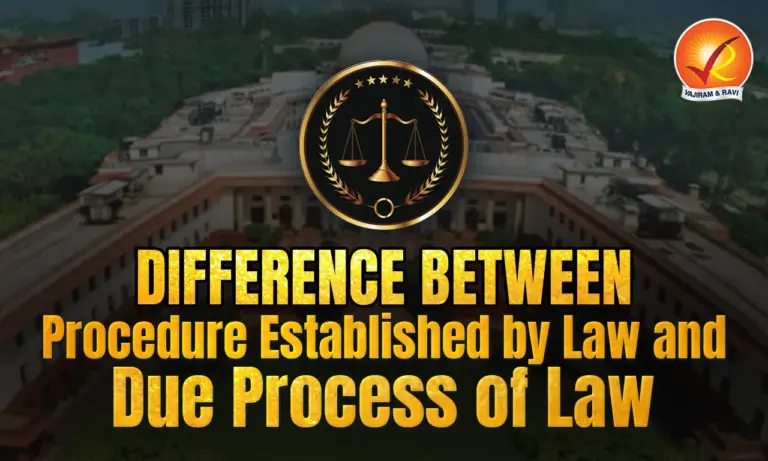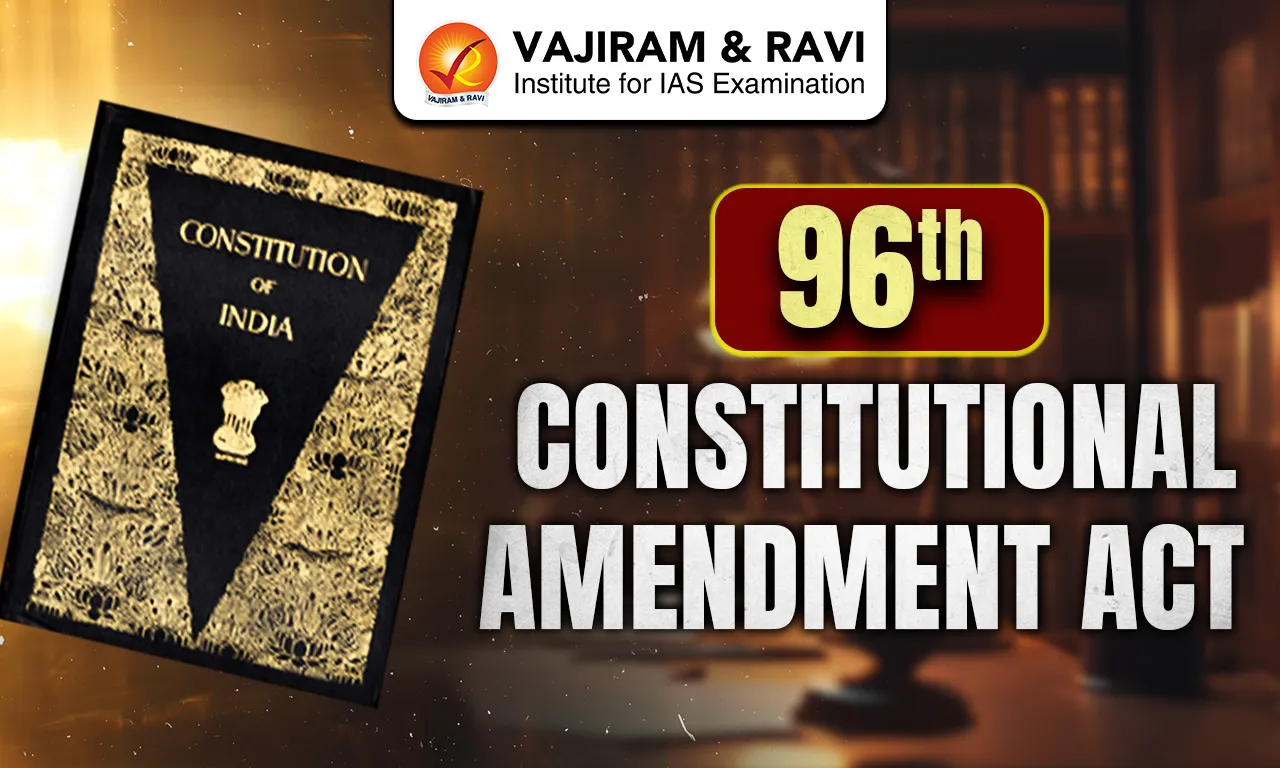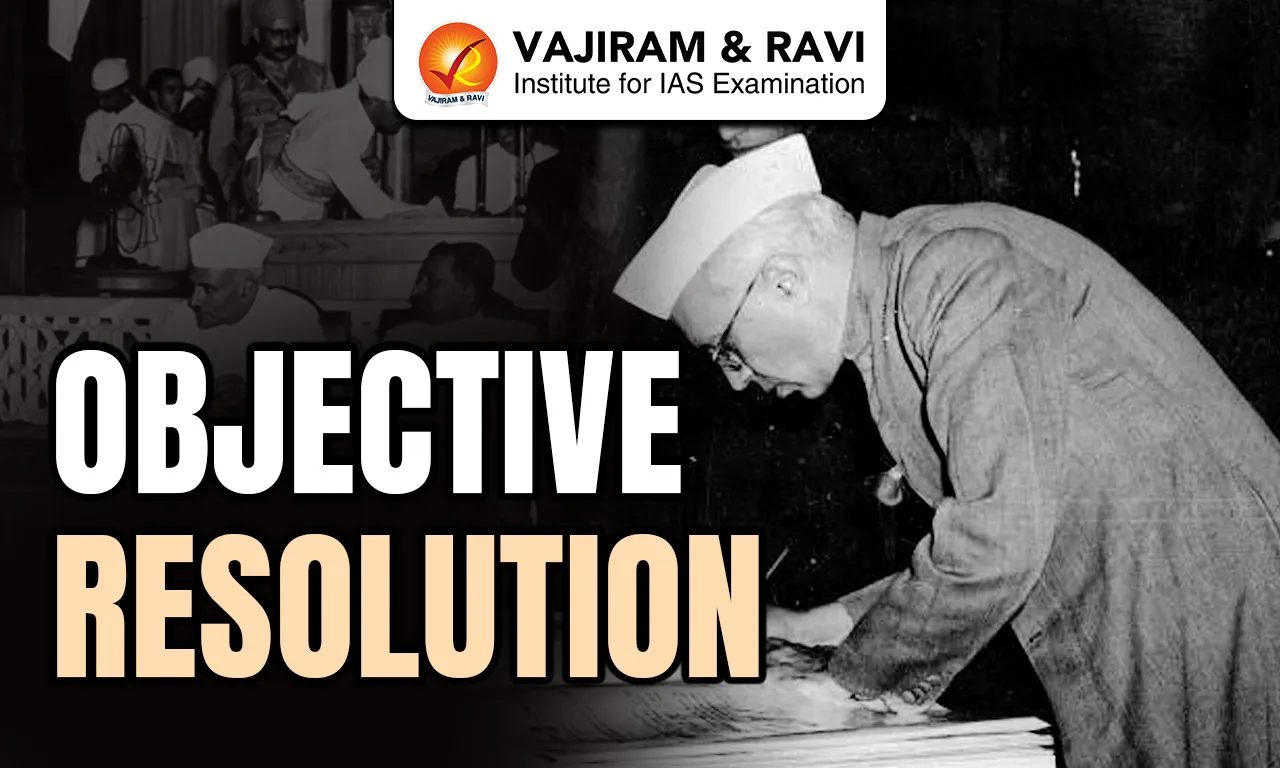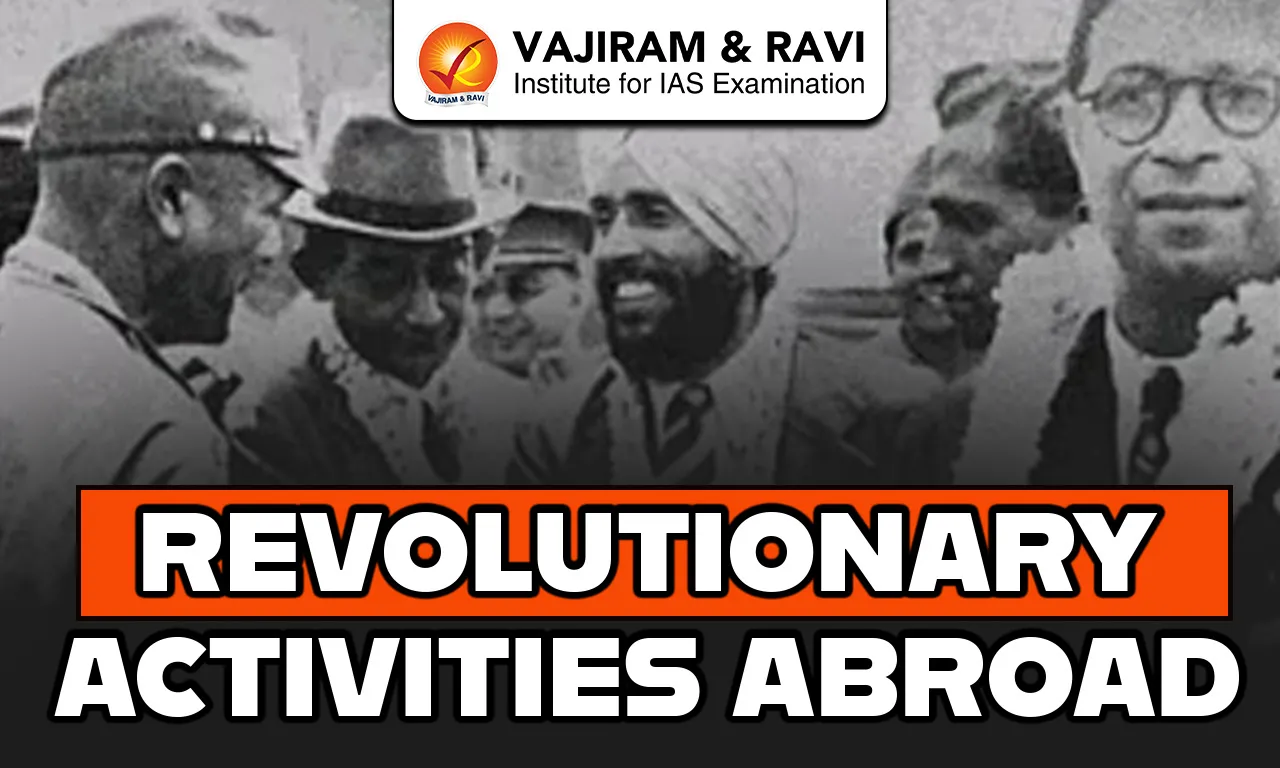The principles of “Procedure Established by Law” and “Due Process of Law” are pivotal in shaping the constitutional and legal frameworks of democratic nations. While both terms deal with protecting the life and liberty of individuals, their scope, interpretation, and application vary significantly.
Procedure Established by Law
The phrase “Procedure Established by Law” is discussed in Article 21 of the Indian Constitution, which guarantees protection of life and personal liberty. According to this principle:
“No person shall be deprived of his life or personal liberty except according to the procedure established by law.”
This means that if a law is duly enacted by the legislature and proper procedure is followed, the state can deprive a person of life or liberty. It does not require that the law itself be just, fair, or reasonable.
Key Features
- Emphasis on legislative procedure.
- Focuses on enacted law, not its fairness.
- More narrow and formalistic in approach.
Due Process of Law
Due Process of Law, a broader concept primarily used in the United States Constitution, ensures not only that a law is followed but also that it is just, fair, and reasonable. It contains two components:
- Procedural Due Process – Whether fair procedures were followed.
- Substantive Due Process – Whether the law itself is fair and just.
In India, though not explicitly mentioned in the Constitution, the Supreme Court has gradually incorporated Due Process principles through judicial interpretations of Article 21.
Difference between Procedure Established by Law and Due Process of Law
The Difference between Procedure Established by Law and Due Process of Law reflects the evolution of constitutional protection in India. What began as a strict adherence to legislative procedure has transformed into a more people-centric approach, ensuring that laws do not merely exist, but that they also uphold the values of justice, fairness, and liberty. The table below includes the Difference between Procedure Established by Law and Due Process of Law:
| Difference between Procedure Established by Law and Due Process of Law | ||
| Aspect | Procedure Established by Law | Due Process of Law |
|
Origin |
Derived from British legal system |
Originates from the U.S. Constitution |
|
Mention in Indian Constitution |
Explicitly mentioned in Article 21 |
Not mentioned directly; interpreted by judiciary |
|
Focus |
Checks if the procedure is legally enacted |
Checks if the law is fair, just, and not arbitrary |
|
Scope |
Narrower; focuses on legal procedure |
Broader; includes substantive fairness |
|
Judicial Review |
Limited; courts can’t question the morality of law |
Extensive; courts can strike down unfair laws |
|
Protection of Rights |
Weaker protection against unjust laws |
Stronger protection of individual rights and liberty |
|
Current Application in India |
Interpreted broadly post-Maneka Gandhi case (1978) |
Partially adopted in Indian jurisprudence via Article 21 |
Important Supreme Court Judgments
A.K. Gopalan v. State of Madras (1950):
- Held that any law made by the legislature is valid if the procedure is followed.
- Applied narrow interpretation of Article 21—Procedure Established by Law only.
Maneka Gandhi v. Union of India (1978)
- Landmark case where the Supreme Court ruled that the procedure must be fair, just, and reasonable, not arbitrary.
- Expanded Article 21 to include Due Process elements.
- Connected Article 21 with Articles 14 and 19, making fundamental rights more integrated and powerful.
Justice K.S. Puttaswamy v. Union of India (2017)
- Recognized Right to Privacy as a part of Article 21.
- Reinforced the need for laws to meet the test of reasonableness and fairness.
Difference between Procedure Established by Law and Due Process of Law Key Points
- India originally adopted only the “Procedure Established by Law”, unlike the U.S., which follows “Due Process of Law”.
- Through judicial activism and progressive interpretations, Indian courts have incorporated the essence of due process.
- Today, Article 21 is not limited to procedural legality; it also ensures fairness and non-arbitrariness of laws.
- This evolution has strengthened the protection of civil liberties in India.
Last updated on February, 2026
→ UPSC Notification 2026 is now out on the official website at upsconline.nic.in.
→ UPSC IFoS Notification 2026 is now out on the official website at upsconline.nic.in.
→ UPSC Calendar 2026 has been released.
→ UPSC Final Result 2025 is expected to be released in the first week of March 2026.
→ Check out the latest UPSC Syllabus 2026 here.
→ Join Vajiram & Ravi’s Interview Guidance Programme for expert help to crack your final UPSC stage.
→ UPSC Mains Result 2025 is now out.
→ UPSC Prelims 2026 will be conducted on 24th May, 2026 & UPSC Mains 2026 will be conducted on 21st August 2026.
→ The UPSC Selection Process is of 3 stages-Prelims, Mains and Interview.
→ Prepare effectively with Vajiram & Ravi’s UPSC Prelims Test Series 2026 featuring full-length mock tests, detailed solutions, and performance analysis.
→ Enroll in Vajiram & Ravi’s UPSC Mains Test Series 2026 for structured answer writing practice, expert evaluation, and exam-oriented feedback.
→ Join Vajiram & Ravi’s Best UPSC Mentorship Program for personalized guidance, strategy planning, and one-to-one support from experienced mentors.
→ Check UPSC Marksheet 2024 Here.
→ UPSC Toppers List 2024 is released now. Shakti Dubey is UPSC AIR 1 2024 Topper.
→ Also check Best UPSC Coaching in India
Difference between Procedure Established by Law and Due Process of Law FAQs
Q1. Which article of the Indian Constitution mentions Procedure Established by Law?+
Q2. Is Due Process of Law part of the Indian Constitution?+
Q3. What is the main drawback of Procedure Established by Law?+
Q4. Which case introduced Due Process-like interpretation in India?+
Q5. How do these doctrines affect individual rights?+
Tags: difference between procedure established by law and due process of law


















